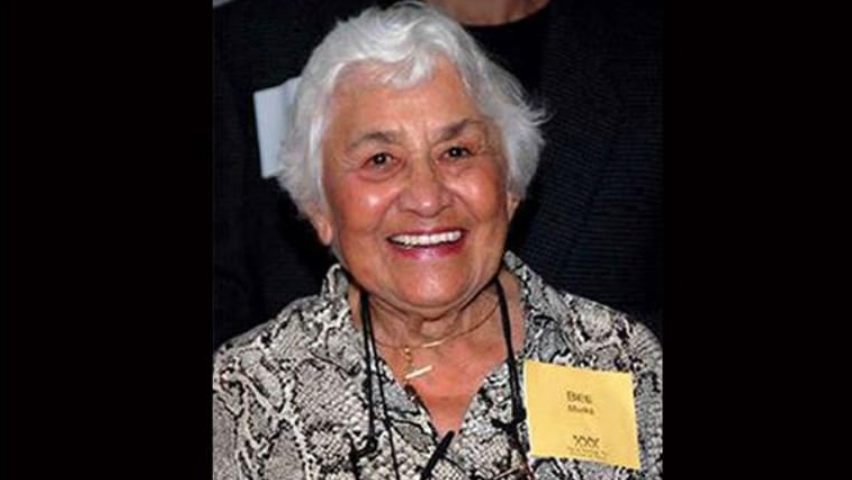More than 5,000 registered dietitians (RDs), nutrition professionals and food industry executives gathered in Orlando earlier this month for the annual Food and Nutrition Conference and Expo (FNCE) hosted by the Academy of Nutrition and Dietetics – the first time the conference was hosted live since 2019. Members of the Ketchum RD team were on site, attending sessions, learning about new research and scouring the expo hall for new products and resources.
Here are our top nutrition trends and hot topics:
Plant-Based Perceptions
There’s a perception gap around what plant-based eating is, with RDs referring to consuming more whole foods like fruits, vegetables, whole grains, nuts, seeds and beans vs what the average consumer’s idea of what eating plant-based is: dairy, fish and meat alternatives. Conversations around how to close the gap included encouraging plants in the center of the plate for meals and plant pairings for snacks.
Plant-Based Eating for __________
From gut health to bone health, cardiometabolic health, performance and more, the case was made throughout the conference for more plants in the diet. But not all plant-based eating patterns are created equal, with a “healthful” plant-based diet inconsistently and vaguely defined in the literature and dietary recommendations. The American Gut Project, which encourages 30 different plant foods a week for optimal gut health, was mentioned multiple times across different educational activities.
Spotlight on Mitochondrial Health
Discussion around mitochondrial health was a first at the conference. Known as the powerhouse of the cells, mitochondria are where energy is produced. New research found that Urolithin A, a postbiotic of polyphenols in some fruits and nuts, supports the breaking down of older mitochondria and rebuilding of newer, efficient ones. With 60% of people not making enough Urolithin A, this adds to the body of evidence that eating plants supports healthy aging.
Diversity Equity and Inclusion
There was a noticeable effort made across educational sessions and in the expo hall to recognize and celebrate the diversity of health professionals and consumers alike. Presenters acknowledged when research findings might not apply to individuals of certain races or ethnicities, while imagery reflected that people come in different shapes, sizes and abilities. In addition to physical diversity, there were discussions on how to best support neurodiverse colleagues and patients. Recipes considered various cultural norms with respect to cuisine type, ingredients used and food photography plating. More work needs to be done but there is momentum from individuals and organizations to celebrate and champion diversity, equity and inclusion within nutrition and dietetics.
Menopause is HOT
Guidance extended beyond dietary management of menopausal symptoms (e.g., with foods high in polyphenols) to topics around self-love (accepting of body changes to reduce stress and enhance quality of life), muscle loss preventative measures (resistance and high intensity exercise as priority, high quality protein secondary) and supporting bone health (through diet and activity).
Focus on Flavor
From hard-boiled eggs dipped in sriracha to sweet & spicy tuna fish to whole wheat crackers with red pepper flakes, pairing favorite foods with “heat” provided new ways to enjoy nutritious options. Global flavors, including guava, mango and passionfruit, were spotted as ingredients in a variety of snacks and beverages.
Fruit & Veggie Innovations That Spark Healthy Nostalgia
Simple, portable, delicious and familiar were what the expo hall success stories for increasing produce had in common – fruit and veggie pouches, crunchy whole fruit and veggie snacks, frozen fruit cups, muffins with veggies as the first ingredient, and favorite condiments reimagined with hidden veggies.
“School-friendly” Claims
While not a defined or regulated term, options from emerging brands promoted as “school-friendly” around the expo hall reassured parents and caregivers and those working with these populations that the items are free from nuts, can be stored without refrigeration, will fit in a lunchbox or snack container, and provide positive nutrition.
Sustainability is Messaging Table Stakes
Both whole foods and packaged products touted sustainability messaging alongside nutrition and health benefits, most notably related to energy and water usage, recyclable packaging, supporting soil health and using byproducts. Environmental, social and governance (ESG) report highlights were distributed as educational collateral and communicated across booth signage by some companies.
Personalized Technology as a Member of the Healthcare Team
Dietitians are central members of the interdisciplinary care team to support the management and treatment of health conditions and new digital therapeutics are emerging that “join” them as the most accessible “members” of the team, providing personalized support such as behavioral therapies for the management of IBS and on-demand access to medical nutrition therapy. There is an opportunity for dietitians to work with and for these new digital offerings.
Continuation of the White House Conference
FNCE extended the discussion of topics from the White House Conference hosted in September, affirming the significant role and contributions that RDs will make to improve the hunger, health and nutrition of the country.
Emerging Research Takeaways
At professional conferences, new research is presented in the form of “poster sessions,” which have been peer reviewed for presentation at the conference but have not gone through the rigorous peer-review process for publication in a scientific journal. The Ketchum RD team makes a point of reviewing these posters at conferences to identify emerging research and research trends.
Here is a summary of what we observed:
Culturally Appropriate Health Interventions
Breaking the norm on culturally appropriate nutrition interventions (e.g., using pictures, symposia, cook books) went mainstream in research.
Body Appreciation
In line with the shift away from pinning determinants of good health on weight status, several studies assessed the role of body appreciation and weight inclusivity as it relates to health.
Culinary Medicine – the RD as Changemaker
Several studies assessed the role dietitians have in educating medical students on nutrition and cooking, to the role of produce prescriptions.
Personalized Medical Nutrition Therapy
Researchers studied this topic across a range of health conditions, including breast cancer and depression.
Learnings from COVID-19 Pandemic
From how dietetics students used art to reveal their COVID-19 experiences, to how dietitians can help with food insecurity, and how fruit and vegetable intake changed, there are many learnings that can be applied to a post-pandemic world.
Food Insecurity and the Mental Toll
Researchers assessed the role food and nutrition insecurity plays on mental health, including feelings of anxiety and depression, coming out of the pandemic.
TikTok for Health Behaviors
A novel study found that fruit and vegetable videos on TikTok are very popular with consumers and can offer a way to reach them on platforms where they are already searching for health information.
Sustainability Among Gen Z
Several studies looked at how Gen Z is interacting with education on the sustainability of foods and how it may drive their food choice or knowledge.
If you have any questions or would like more information, please contact me here.




